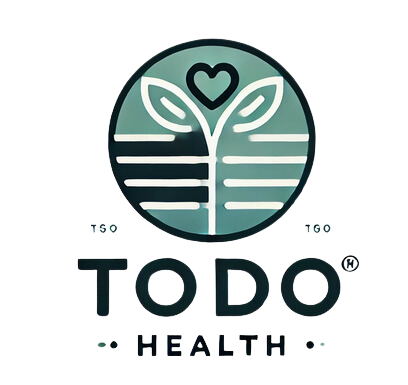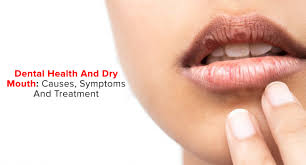Waking up with a dry mouth once in a while is normal—maybe you slept with your mouth open or didn’t drink enough water the night before. But if your mouth feels parched all day, every day, it’s not something to ignore. Chronic dry mouth, also known as xerostomia, isn’t just uncomfortable—it can lead to bad breath, tooth decay, difficulty swallowing, and even digestive issues. Many people in the USA and UK live with dry mouth without realizing there may be an underlying reason that needs attention.
You might assume it’s just dehydration, but in many cases, persistent dry mouth goes deeper than simply not drinking enough water. It can be a sign of something going on with your medications, your lifestyle, or even your overall health. Here are five often-overlooked reasons your mouth might be dry all day—and what you can do about it.
1. Medications Are Drying Out Your Mouth
One of the most common causes of chronic dry mouth is medication side effects. Over 500 medications are known to reduce saliva production. These include common drugs for blood pressure, depression, anxiety, allergies, cold symptoms, and even pain relief. Antidepressants, antihistamines, decongestants, muscle relaxants, and certain diuretics are among the top culprits.
What it means: If you’ve recently started a new prescription or changed your dose and started noticing dry mouth around the same time, there’s a good chance the medication is the cause. Saliva plays a critical role in keeping your mouth moist, neutralizing acid, and protecting against bacteria. Reduced saliva production due to medication can leave your mouth feeling sticky or dry all day.
What to do: Talk to your healthcare provider about alternatives or adjustments to your medications. Don’t stop any prescription on your own, but ask if there’s a lower dose or a drug with fewer drying effects. In the meantime, drink small sips of water throughout the day and use sugar-free lozenges or mouth sprays designed for dry mouth relief.
2. Dehydration Is Sneakier Than You Think
Even mild dehydration can cause persistent dry mouth. Many people think they’re drinking enough water, but factors like hot weather, caffeine, alcohol, and high-sodium diets can quietly dehydrate the body. Dehydration affects your entire system, but your mouth often feels it first.
What it means: If your urine is dark yellow, if you feel fatigued, dizzy, or have dry skin along with dry mouth, you may simply not be getting enough fluids. Caffeine and alcohol both have diuretic effects, meaning they can cause your body to lose water faster than usual.
What to do: Aim to drink at least 6–8 glasses of water daily, more if you’re physically active or live in a dry or hot climate. Swap soda or coffee for herbal teas or infused water with lemon, cucumber, or mint. Set reminders to sip throughout the day rather than chugging all at once.
3. Mouth Breathing and Sleep Issues
Breathing through your mouth, especially while sleeping, can dry out your oral tissues significantly. This habit is often linked to allergies, sinus congestion, or conditions like sleep apnea. Many people aren’t aware they’re mouth breathers until someone points it out or they notice waking up with a dry mouth or sore throat.
What it means: Chronic mouth breathing keeps your mouth open for long periods, which leads to evaporation of saliva and that sticky, parched feeling. Sleep apnea, a condition where your breathing is interrupted during sleep, can make this worse and also result in fatigue, snoring, and headaches.
What to do: Treating the root cause—like managing allergies or getting evaluated for sleep apnea—can dramatically reduce dry mouth. Use nasal strips, a humidifier, or saline sprays to help open nasal passages. If sleep apnea is suspected, ask your doctor about a sleep study and treatment options like CPAP therapy.
4. Underlying Health Conditions
Sometimes, dry mouth is a symptom of an underlying health issue that hasn’t been diagnosed yet. Conditions like Sjögren’s syndrome, diabetes, autoimmune diseases, and thyroid disorders can all reduce saliva production. In these cases, dry mouth is more than just a nuisance—it’s a clue your body needs support.
What it means: If you’re dealing with other symptoms like joint pain, dry eyes, unexplained fatigue, or frequent infections along with dry mouth, it’s time to investigate further. Diabetes, for example, can cause dry mouth due to high blood sugar levels affecting moisture balance in the body.
What to do: Keep a symptom diary and share it with your healthcare provider. Blood tests and autoimmune panels can help identify any hidden conditions. Early diagnosis and management can prevent complications and improve your overall quality of life.
5. Your Diet and Lifestyle Habits Are Contributing
What you eat and drink throughout the day can either help or hurt your saliva production. Spicy, salty, and acidic foods may make dry mouth worse. So can alcohol-based mouthwashes and smoking. Even chewing tobacco and vaping contribute to oral dryness.
What it means: If your diet is heavy in processed snacks, salty meals, or caffeinated beverages, your mouth may not be getting the moisture support it needs. Smoking and vaping not only reduce saliva but also irritate the lining of your mouth and throat.
What to do: Choose water-rich fruits and vegetables like watermelon, cucumber, oranges, and leafy greens to help hydrate your mouth naturally. Avoid mouthwashes with alcohol and opt for ones formulated specifically for dry mouth. Quitting smoking or vaping can significantly improve your oral and overall health.
Tips to Soothe Dry Mouth Naturally
In addition to addressing the root cause, here are some quick ways to find relief:
-
Chew sugar-free gum or suck on sugar-free lozenges to stimulate saliva.
-
Use a humidifier at night to add moisture to dry indoor air.
-
Rinse with a mild baking soda solution (1/4 teaspoon in a cup of water) to keep your mouth moist and reduce acidity.
-
Avoid salty or dry foods like crackers and chips if your mouth feels especially dry.
-
Keep a reusable water bottle with you and sip frequently throughout the day.
When to See a Doctor
If your dry mouth lasts more than a few days, disrupts your sleep, affects your eating, or is accompanied by other symptoms like dry eyes, fatigue, or frequent urination, it’s time to consult a healthcare provider. Persistent dry mouth can affect your dental health and may signal something more serious that needs attention.
Dry mouth all day isn’t just about needing more water. It can be a signal from your body that something’s off—whether it’s a medication side effect, a hidden health issue, or simply a lifestyle habit that’s throwing things out of balance. With the right awareness and a few adjustments, most cases of chronic dry mouth can be managed or even resolved naturally.
Don’t ignore it. Your mouth deserves the same care and attention as the rest of your body. And when you start listening to the subtle signs, you’ll be one step closer to better health, comfort, and well-being.





